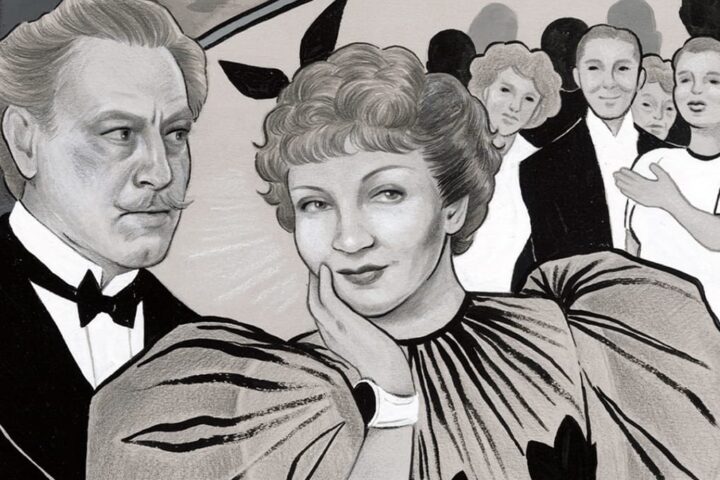![]() Charles Burnett’s little-seen 1999 dramedy The Annihilation of Fish is a curious outlier in the filmography of a director best known for his lyrical realism and interest in the ways that people’s characters are informed by their surroundings and history. Here is a story of old, lonely souls each possessed of a form of mental illness that only further isolates them until circumstances bring them together, at which point they navigate each other’s foibles in ways that gradually allow them to confront their own.
Charles Burnett’s little-seen 1999 dramedy The Annihilation of Fish is a curious outlier in the filmography of a director best known for his lyrical realism and interest in the ways that people’s characters are informed by their surroundings and history. Here is a story of old, lonely souls each possessed of a form of mental illness that only further isolates them until circumstances bring them together, at which point they navigate each other’s foibles in ways that gradually allow them to confront their own.
Obadiah “Fish” Johnson (James Earl Jones), a Jamaican immigrant and widower who’s regularly assaulted by an invisible demon named Hank, journeys from New York to Los Angeles and ends up lodging in a house alongside Poinsettia (Lynn Redgrave), who’s spent years in an imagined relationship with the long-dead Italian opera composer Giacomo Puccini. Their landlady, the widowed Mrs. Muldroone (Margot Kidder), is comparatively saner but nonetheless subject to her own fixations, most especially her militant insistence that no one ever forget the “e” at the end of her name.
These are exaggerated forms of madness, and the film wrings much comedy out of their absurdity and the way bystanders nervously attempt to distance themselves from the central characters during interactions. Still, Burnett approaches Fish, Poinsettia, and Mrs. Muldroone with the same curiosity he displays in more solemn works like Killer of Sheep and Nightjohn, and the actors likewise look for the relatable and empathetic notes buried within the characters’ bouts of dissociation. In the same way the best actorly depictions of drunkenness emphasize the effort a person exerts to seem sober to others, the leads here undercut their characters’ most outlandish behavior with a visible effort to reassert self-control and maintain dignity.
Eventually, Fish and Poinsettia grow closer as each finds in the other someone willing to take their hang-ups seriously. Gradually, one gets the sense that their mental issues stem from past traumas and loss—of hallucinations as manifestations of repressed, unprocessed feelings. At one point, Mrs. Muldroone confesses that the “e” that she stresses so much in her surname was actually an addition she made to her husband’s name after his death, and it’s tacitly understood that she did so to lay claim to a name that she never felt belonged to her.
There are political observations at the margins of The Annihilation of Fish. The film opens with Fish being put out of a psychiatric institution that housed him for years not because he has shown improvement but because various cuts in federal funding under multiple presidential administrations have sapped the facility of money. And as he and Poinsettia’s romance heats up, Fish occasionally attempts to pump the brakes out of an ingrained anxiety over the social costs of an interracial relationship having lived most of his life in a system that outlawed it.
For the most part, though, the chief issue hanging over the characters’ heads is age and the possibility of facing their twilight years alone. In taking these strange people on the terms of their cautious willingness to open up to each other, The Annihilation of Fish becomes one of the tenderest films ever made about finding purpose and love long after one expects to do so.
Image/Sound
Long viewable only as a poor-quality bootleg, The Annihilation of Fish looks wonderful on this Blu-ray release. Colors are well-balanced and bright, with reds and pinks especially popping. Lighting is stable and never subject to crushing, while detail is consistently sharp. The audio track contains mostly dialogue and the occasional music cue, and it renders everything clearly.
Extras
In addition to the main feature, Milestone’s disc comes with another little-seen Charles Burnett gem, The Final Insult, his 1997 docufiction about rising homelessness in Los Angeles. The film follows a well-meaning local (Ayuko Babu, who played a similar role in Burnett’s 1995 short “When It Rains”) and runs up against both structural limits and the destructive rage and despair among the city’s downtrodden. Shot on digital video, the hour-long film matches its hazy visual resolution with a muddy separation between its rehearsed and candid scenes, mixing the protagonist’s run-on rants and the woeful stories told in man-on-the-street interviews into a harrowing portrait of a city’s overlooked regions and people.
Also included is an audio commentary by Burnett and film curator Maya Cade, as well as a Q&A from a restoration screening with Burnett and moderator Racquel Gates. Across both extras, Burnett is convivial and relaxed as he speaks diplomatically about the challenges that kept the film from proper release while gushing over the contributions of the cast and crew.
Overall
Charles Burnett’s unorthodox, affirming comedy receives a long-overdue video release.
Since 2001, we've brought you uncompromising, candid takes on the world of film, music, television, video games, theater, and more. Independently owned and operated publications like Slant have been hit hard in recent years, but we’re committed to keeping our content free and accessible—meaning no paywalls or fees.
If you like what we do, please consider subscribing to our Patreon or making a donation.




